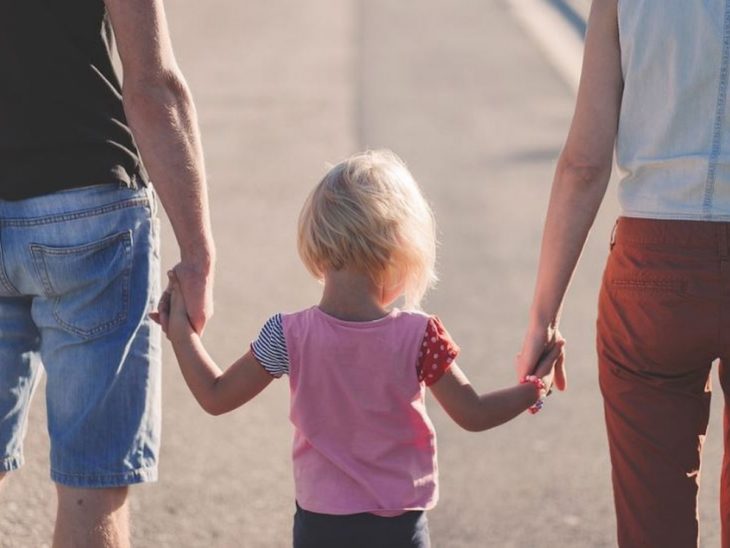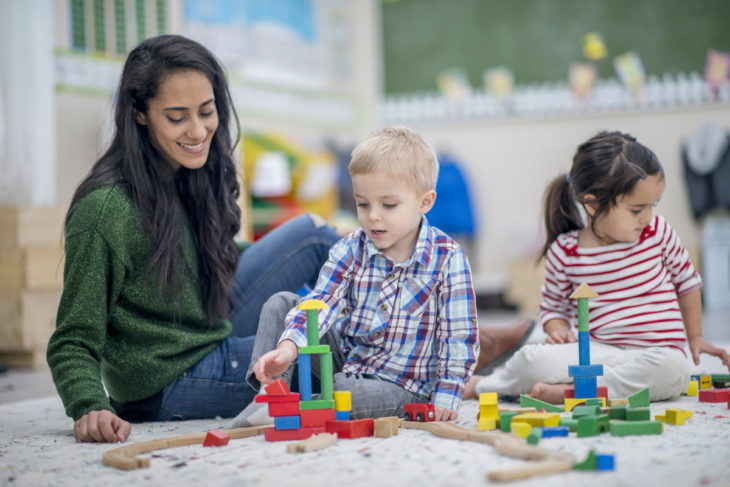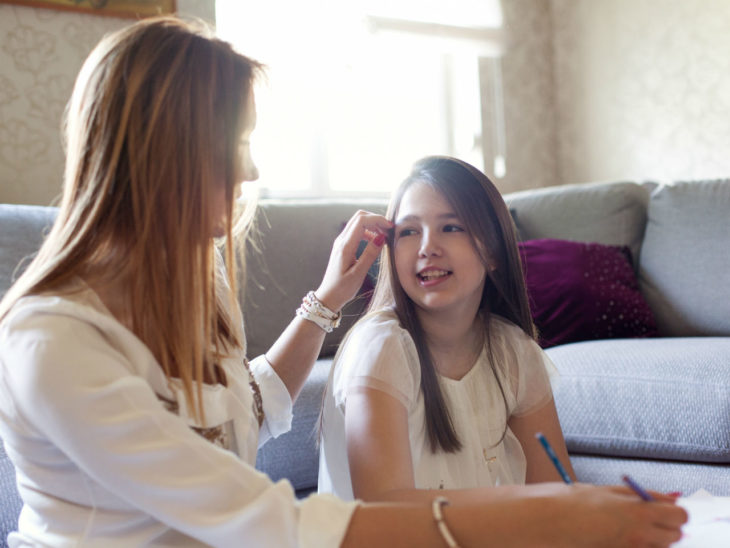I never want to be a primary parent; I very much want to nurture and raise children as part of a committed family unit.
It’s alright if you need a minute. Go ahead and reread it.
Five years ago, as I was unwittingly being ushered along the hetero/mononormative conveyor belt of life, those would have looked like contradictory sentiments to me as well. Since then, who I am hasn’t changed, exactly. I feel more as though I have woken up after not realizing I was asleep.
For most of my twenties, I watched with despair as “required” milestones passed me by. I didn’t find someone who wanted to be in a relationship with me until I was 26 and struggled for four years with whether being alone was preferable to being abused. With only that one disastrously unhealthy relationship for me to dissect, it took awhile to process that, perhaps, it wasn’t just the person I was with, but the actual relationship itself that was making me unhappy.

Source: Kent Live
I was 30 before the conscious thought that getting married and having children were choices rather than inevitabilities struck me like a punch in the face. I remember it having a physical effect, as though my subconscious was so pissed at me that the frustration manifested into a fist to get my attention.
Standing there in my Chicago condo rubbing my jaw, I looked around at my living room. For the first time, I considered what I actually wanted from life.
I don’t ever want to get married, I realized. Still frozen in the same spot, I felt a tension in my neck and shoulders I didn’t know was there dissipate. I wasn’t simply telling myself that because I hadn’t been able to make it happen or because I hadn’t yet met “the one” — this was my real, honest truth.
I pulled out the internal Life To-Do List that we all carry around and started analyzing it. Who put “marriage” on this fucking thing anyway? I sure as shit didn’t remember doing it. Yeah, I had always wanted companionship and connection, but I had a lot of that. I was overloaded with family-by-choice and I was never lonely, so WHY WAS MARRIAGE ON THERE?
With that thought, it vanished off the list with a puff of smoke. I glanced at the next line item: CHILDREN.
Wait … do I actually want kids?
I thought about what I knew of the day-to-day of raising children and was dumbfounded that I’d never done that before. And I don’t mean the diapers or the sleep deprivation; I was a 60-hour-a-week dog-walking bartender who spent plenty of time handling poop on four hours of sleep or less. I mean the daily grind, the schedule, the structuring of activities that comes with child-rearing. I thought about what I considered to be important elements of childhood and glanced up from the kid’s perspective to check out how the adults were doing.
Thanks, but no thanks.
I realized my only draw to parenting was to do better than was done for me, which seemed like a selfish, pressure cooker of a motivation. Having kids to “break the cycle” felt more like revenge or a need to prove something than genuinely wanting to nurture tiny humans.
And so children popped off the to-do-list as well.

Source: AAA Jewelers
Marriage and children were the only societal givens left on my Life List. They’d been at the top, which was how I came to understand the way cultural norms affect us and cause internal conflict we aren’t able to decipher. I had lived away from the small Indiana town of my birth for 12 years. I had shed my religion, developed my own ethics code, been through a career crisis and rebuilt my life from scratch – twice. But somehow the top two line items had survived all the revisions. Our cultural norms are mad powerful, I’d discovered.
Suddenly I felt free. Then, I immediately felt panicked: Um, so then, what do I want?
*****
One Spring afternoon three years later, Reid Mihalko’s description of polyamory was pumping into my earbuds via Tristan Taormino’s radio show, “Sex Out Loud,” on a stroll to the subway. I was so riveted, I found myself coming to a full stop five or six minutes into their dialogue, standing smack in the center of a Brooklyn sidewalk (not recommended). It was like being told I was lost and gently given the right directions by a perfect stranger.
If you’re hearing the word “polyamory” for the first time, I find Franklin Veaux and Eve Rickert’s conversational definition from More Than Two: A Practical Guide To Ethical Polyamory to be the most helpful and also the one I identify with:
polyamory (n) — poly • am • ory: “having multiple loving, often committed, relationships at the same time by mutual agreement, with honest and clarity.”
The concept that I could maintain my autonomy by identifying as “solo poly” and not seeking an anchor partner (traditionally a spouse or other live-in partner) was a revelation. When I’d stepped off the hetero/mononormative conveyor belt I wasn’t equipped to answer the question still hanging in the air of my Chicago condo. Society hadn’t given me the words or concepts to even explore the answer.
I realized I had accidentally created a poly-esque situation for myself – before moving halfway across the country – by stumbling into three long-term, non-committed partnerships based on mutual respect, caring, and, of course, sex. Because we don’t have a term for those relationships in mononormative culture, I hadn’t considered that they could be built on purpose. “Friends with benefits” has been hijacked by Puritanical types who think “fuck buddy” isn’t a valid or even permissible relationship category. In poly culture, though, you can call those partners and the ones I had stumbled into whatever the two of you decide works: secondary partner, non-anchor partner, metamour, girl/boyfriend.
The more I listened to Mihalko and Taormino talk about the poly emphasis on communication and respect and tending to partners’ needs in a boundary-respecting way, the more I realized they were describing my relationship style. But, as with anything, it’s nearly impossible to be completely positive without some experience.

Source: Dating & Relationships – LoveToKnow
*****
That was a year and a half ago. I’ve since moved cross-country (again) to Southern California and have finally gotten the chance to actively date other poly people and explore the kinds of relationships and connections that work for me.
I’m dating someone who has an anchor partner and have discovered I am not only fine with the concept of sharing my boyfriend, I actively like it. Poly folks call that “compersion,” or “a feeling of joy when a partner invests in and takes pleasure from another romantic or sexual relationship.” It’s essentially the opposite of jealousy. I trust my boyfriend’s other partner to care for his daily needs and have developed an intense appreciation for the way they communicate and support one another.
As I’ve finally been able to figure out what I’m replacing the Marriage line-item with on my Life To-Do-List, that Children slot has gotten another look. Maybe this shouldn’t have surprised me: if I found swapping out marriage for a less traditional, but just as potentially life-long type of relationship(s), why not reconsider my position on being inflexibly child-free?
When I moved to Southern California, it was to get on my feet and to help a sister-by-choice care for her two small children. And I mean small: she has a one-month-old and a 13-month-old. I have been here for all of the youngest’s life and before the oldest was walking. Live-in nanny duties for an overnight-shift ER nurse means not just playing with the kids from 9-5 while mom is at work – my shifts are round-the-clock, three-and-a-half days every week.
I have become a primary caregiver to two girls who reach for me when they need comforting, look to me when they need help or are confused, and get excited when I come out of the seclusion of my room/office because it’s been FOREVER since they’ve seen me. It turns out, I’m not only pretty good at this kid thing — I like it. A lot.
I also like that for half the week I’m off duty and able to chill with my cat, a book, and glass of wine, whether or not everyone has successfully gone to bed. I can go on a three-day writing marathon, complete with all-nighters, and not be interrupted by the baby monitor or breakfast time. I’m not scouting pre-schools or scheduling pediatrician appointments and swim lessons.
I know this arrangement isn’t going to last. When I’m ready to be on my own and my sister no longer needs me, I’ll move out and be without my daily kid fix. As I started putting my plans together and working toward an autonomous, stable life here, I was hit with how much I’d miss my very regular time with the girls. Obviously, I’ll still see them and be the super-involved aunt and babysitter, but that’s not the same thing as sitting on my bed working on an assignment with my niece playing beside me or asleep on my chest.

Source: Care.com
The possibility of being a valued, integral caregiver has awakened the nurturing instinct everyone “reassured me” throughout my late-twenties and early-thirties would pop up and change my mind about having kids. This doesn’t mean I want to be a full-time parent. Even if my long-term career goals would allow for that, it doesn’t appeal to me. Luckily, I’m building a life and love network in a community where relationships and roles develop naturally based on everyone’s needs and gifts — and that means having nearly infinite options.
My definitive designation as “childfree by choice” was based on the mononormative culture and relationship structure of the two-parent household. I haven’t so much changed my mind as been introduced to a world where love isn’t restricted and people’s agency and consent are respected without skepticism or value judgement.
I ascribe to the More Than Two authors’ philosophy that sitting by myself in my room outlining precisely the relationship types and structures I’d like to have in place can lead to valuing what people give me more than valuing the people themselves. So, I haven’t plotted out a life course and set about shopping to fill the roles required to build that life.
Instead, I daydream about the types of relationships and connections I’m open to. I am creating a nontraditional-by-choice family and can see myself as part of a central triad where the anchor partners have children. I don’t require a sexual relationship with someone for them to be family to me in an integral, committed way. And I definitely don’t need a genetic connection to a child for them to be mine — just ask my four nieces and their parents, none of who are blood relations.
I do, however, intensely desire a structure where my role is valued and recognized. I’m not up for being diminished as a babysitter or “add-on” bonus friend of the family who hangs around a lot. Kids are smart and instinctive; they recognize their caregivers without explanation or instruction. Adults, however, have to purposely foster that nurturing environment amongst themselves; kids pick up on the way the adults address each other and interact.

Source: Today’s Parent
My growth and accidental life events have collided to create an openness in myself I wasn’t expecting. Now, should I find myself presented with the chance to be part of a family where my autonomy and boundaries are as respected as my nurturing and innate gifts with children, I’m totally in.
Original by Katie Klabusich
